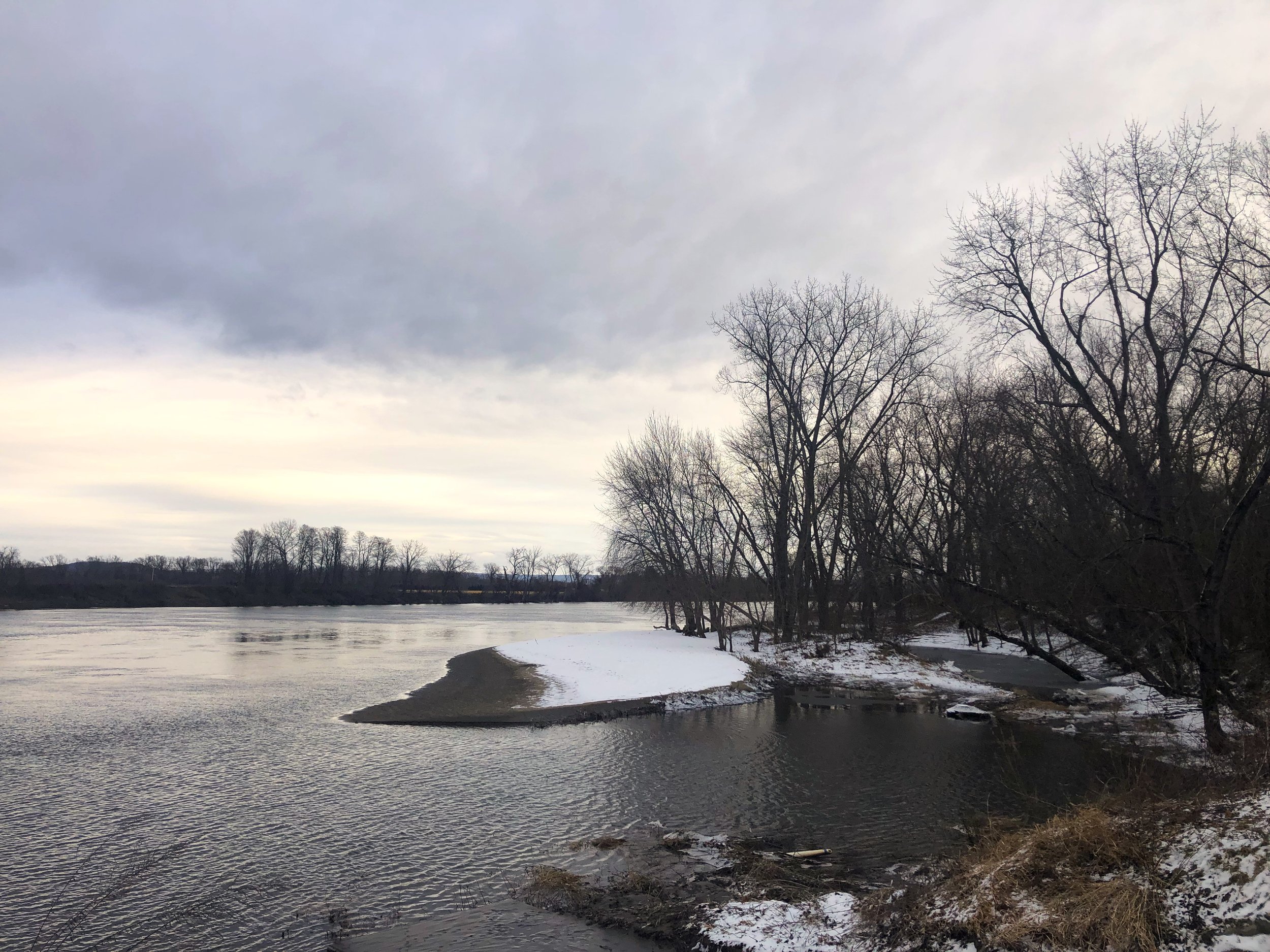Honoring Land

In all things, we are held by the land.
The work of Ampersand Healing is sinking roots and spreading shoots along the life-giving waterways of the Kwinetikw, the Great Tidal River. I am nourished by growing relationships with the blue vervain, dwarf wedgemussels, and others who call this river and its banks home. In attuning to the work of healing, I attune to the deep wounds and calls of healing of the land and its original peoples. As my teacher Marika Clymer reminds me, the first step in any sort of repaired relationship is an acknowledgement of the harm caused.
Though the land and waters cannot actually be owned, they have been stolen—stolen from under the bodies of the Nonotuck and Pocumtuc peoples, who intimately tended for 2,000 generations before they were severed from the land through murder and dislocation. Fleeing violence in the Valley, many in these communities were forced from their ancestral homelands and found relative safety with their kinship networks in neighboring communities of the Nipmuc (to the East), Mohegan and Pequot (to the South), Mohican and Mohawk (to the West), and Abenaki (to the North). In the Valley and beyond, the Nipmuc Nation continues to organize for self-sovereignty while preserving and promoting their culture, language, and values. As a body, this land continues to bear the open wounds of the original and ongoing violence of settler colonialism—of which my ancestors (and I, by being here) have taken part.
As is often true of complex trauma, the wound of settler colonialism is wrapped up with other harms. This land is also shaped by the younger sibling wound of racialized capitalism based on the enslavement of Black peoples and the attendant creation of both whiteness and anti-Blackness. Ecological devastation, state violence, trans & queer antagonism, borders, extractionism, violence toward immigrants and womb-bearers—none of these systems are native to this land. The waters are in danger—as are we.
Healing work must include the land.
In addition to acknowledging the land and its history, I share my commitment to respecting this place and its aliveness, its wounds and lessons, its whispers and shouts. I share my respect for the past, present, and future Indigenous elders of this land, both human and beyond-human.
As reflections of this commitment, I:
Commit to making choices that are in service of the soil, water, and interconnected web of life in this watershed and beyond
Redistribute a portion of all income to the Nipmuc Nation, Ohketeau Cultural Center, The Eastern Woodlands Rematriation Collective, Black Trans Liberation, and additional mutual aid relationships
Offer equity rates for queer and trans Black, Indigenous, and other people of color
Continue to be shaped by the spiritual geology of this land, with its layers of bones and light
Continue to learn from, center, and follow the lead of Indigenous teachers, activists, and movements
